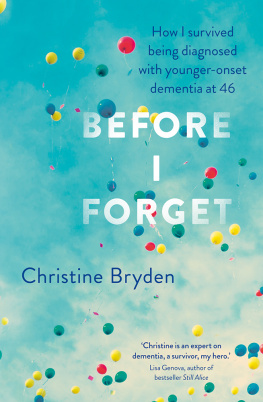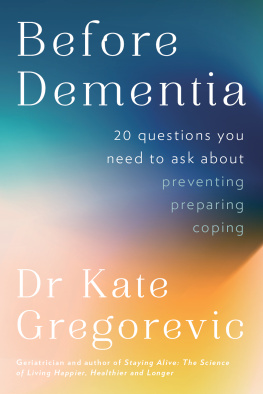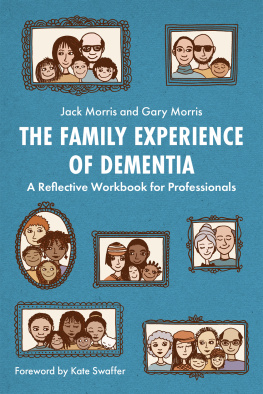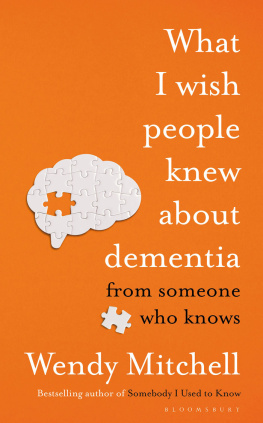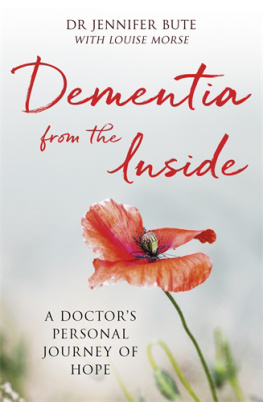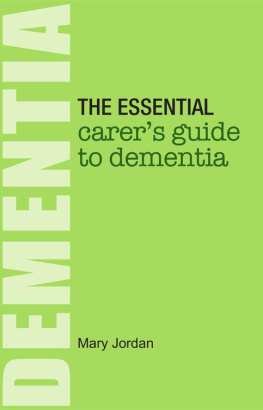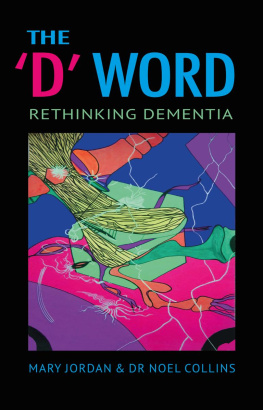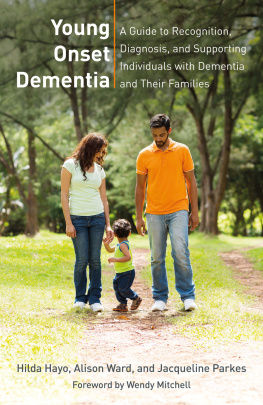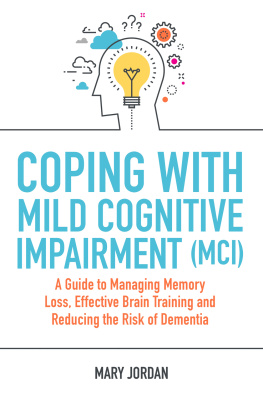Christine Bryden - Before I Forget: How I Survived a Diagnosis of Younger-Onset Dementia at 46
Here you can read online Christine Bryden - Before I Forget: How I Survived a Diagnosis of Younger-Onset Dementia at 46 full text of the book (entire story) in english for free. Download pdf and epub, get meaning, cover and reviews about this ebook. year: 2015, publisher: Penguin Random House Australia, genre: Home and family. Description of the work, (preface) as well as reviews are available. Best literature library LitArk.com created for fans of good reading and offers a wide selection of genres:
Romance novel
Science fiction
Adventure
Detective
Science
History
Home and family
Prose
Art
Politics
Computer
Non-fiction
Religion
Business
Children
Humor
Choose a favorite category and find really read worthwhile books. Enjoy immersion in the world of imagination, feel the emotions of the characters or learn something new for yourself, make an fascinating discovery.
- Book:Before I Forget: How I Survived a Diagnosis of Younger-Onset Dementia at 46
- Author:
- Publisher:Penguin Random House Australia
- Genre:
- Year:2015
- Rating:4 / 5
- Favourites:Add to favourites
- Your mark:
Before I Forget: How I Survived a Diagnosis of Younger-Onset Dementia at 46: summary, description and annotation
We offer to read an annotation, description, summary or preface (depends on what the author of the book "Before I Forget: How I Survived a Diagnosis of Younger-Onset Dementia at 46" wrote himself). If you haven't found the necessary information about the book — write in the comments, we will try to find it.
When she was just 46, Christine Bryden science advisor to the prime minister and single mother of three daughters was diagnosed with younger-onset dementia. Doctors told her to get her affairs in order as she would soon be incapable of doing so. Twenty years later she is still thriving, still working hard to rewire her brain even as it loses its function.
The unusually slow progress of her condition puts Christine in a unique position to describe the lived experience of dementia, a condition affecting tens of millions of people worldwide. In this revealing memoir, she looks back on her life in an effort to understand how her brain once her greatest asset, now her greatest challenge works now. She shares what its like to start grasping for words that used to come easily. To be exhausted from visiting a new place. To suddenly realise you dont remember how to drive. To challenge, every day, the stereotype of the empty shell. Brave and inspiring, this is Christines legacy for people with dementia and those who care about them.
Christine teaches us that we are more than what our brains are capable of remembering, that while we can still breathe and love, we all have something important to contribute to this world. Lisa Genova, author of bestseller Still Alice
Christine Bryden: author's other books
Who wrote Before I Forget: How I Survived a Diagnosis of Younger-Onset Dementia at 46? Find out the surname, the name of the author of the book and a list of all author's works by series.

